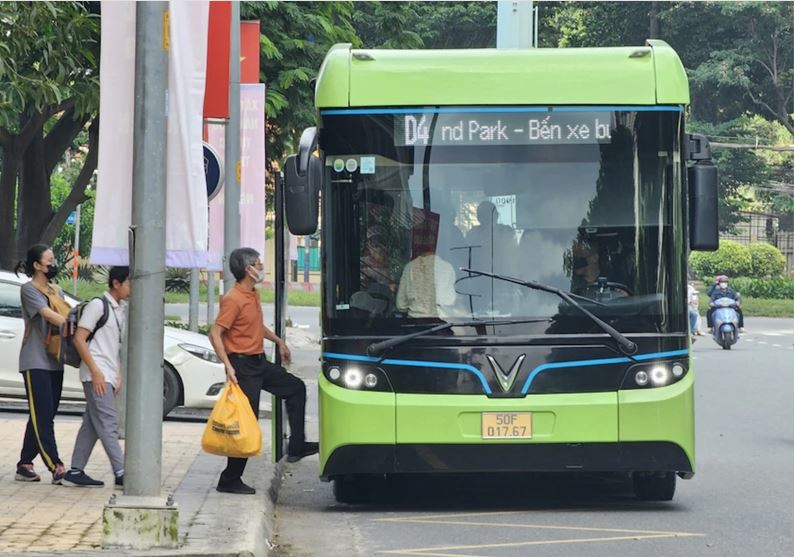Green public transportation services in Ho Chi Minh City will be sped up with a plan to make all buses run on electricity or other forms of green energy by 2030, according to an announcement at a press briefing on the southern city’s socio-economic situation held on July 17.
Mr. Ngo Hai Duong, Head of Road Transport Management under the municipal Department of Construction, was quoted by the Vietnam News Agency as stating at the press briefing that this shift forms a key part of Phase 1 of the city’s vehicle emissions control project, carried out under the National Assembly's Resolution No. 98/2023/QH15 on pilot special mechanisms and policies for HCM City’s development.
As part of the initiative, the city’s Department of Construction has proposed measures such as support policies for transport businesses to shift to clean energy vehicles, the development of charging stations, and plans for infrastructure investment.
In Phase 2, the project will expand to cover new Ho Chi Minh City after its administrative merger with Binh Duong and Ba Ria-Vung Tau provinces on July 1, 2025. A detailed roadmap and support policies are being drafted and expected to be submitted to the municipal People’s Council in the fourth quarter of 2025.
This phase will focus on encouraging the use of green energy across all transport modes, including taxis, ride-hailing cars, contracted vehicles, coaches, trucks, and private cars. It will also apply to vehicles operated by public agencies, state-owned enterprises, and private businesses.
The project also proposes developing urban space planning and electric vehicle infrastructure, including charging and battery swapping stations. It outlines programs to replace outdated vehicles with electric or green energy-powered ones and introduces measures to reduce emissions from road transport.
According to Mr. Duong, this initiative supports the city’s green growth strategy and aligns with the national action plan on green energy transition and carbon emissions reduction, as directed by the Prime Minister.
Ho Chi Minh City currently faces worsening air pollution, with road transport accounting for 90% of CO and 31% of PM2.5 emissions. As of mid-2025, the city had around 9.6 million personal motorbikes and cars, plus an additional 2 million vehicles entering daily from nearby areas. This puts significant pressure on the environment and air quality.









 Google translate
Google translate